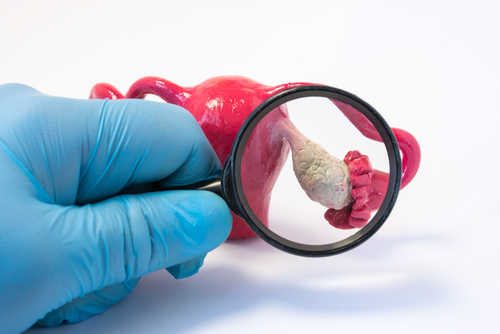This post was originally published on this site The candidate CAR-T cell therapy bb2121 showed a favorable safety profile and eliminated traces of cancer in nearly half of heavily pre-treated multiple myeloma patients included in a Phase 1 clinical trial, interim results show. The study, “Anti-BCMA CAR T-Cell Therapy bb2121 in Relapsed or Refractory Multiple…
About Cancer
Cancer, also called malignancy, is an abnormal growth of cells with the potential to invade or spread to surrounding tissues and structures found within the body. There are more than 100 types of cancer. A few examples include breast cancer, skin cancer, lung cancer, colon cancer, prostate cancer, and lymphoma. According to the American Cancer Society, 4 out of 10 people will be diagnosed with some form of cancer in their lifetime. Cancer prevalence has given rise to multiple medical specialties focused on symptom management and disease management. Current treatment options depending on the form of cancer include chemotherapy, radiation, blood or bone marrow transfusions, and/or surgery. Lifetime prognosis of cancer mortality is dependent on the type of cancer and is heavily conditional to early detection.
Conditions
Cancer News
Prestige’s HD201, a Biosimilar to Herceptin, Accepted for Review in Europe for HER2-positive BC
This post was originally published on this site The European Medicines Agency (EMA) has accepted for review the Marketing Authorization Application (MAA) submitted by Prestige BioPharma for HD201, its lead biosimilar to Genentech‘s Herceptin (trastuzumab). Like Herceptin, HD201 is indicated for the treatment of women with HER2-positive breast cancer. Prestige’s lead biosimilar candidate also is indicated…
DPX-Survivac Elicits Anti-Cancer Immune Activity in Recurrent OC, Data Show
This post was originally published on this site DPX-Survivac combined with intermittent low-dose cyclophosphamide can generate significant anti-tumor immune responses that correlate with tumor regression in women with recurrent advanced ovarian cancer, latest results from the DECIDE1 Phase 2 trial show. Interim data announced by DPX-Survivac‘s developer, IMV, revealed that all 15 patients with smaller tumors…
Pivotal OPTIMISMM Trial Shows Benefits of Pomalyst Triple Combo Therapy
This post was originally published on this site Treatment with Pomalyst (pomalidomide) in combination with Velcade (bortezomib) and dexamethasone prolongs survival without disease worsening in patients with multiple myeloma who have failed prior treatments, including Revlimid (lenalidomide), results from a pivotal clinical trial show. Building on this data, the European Commission recently approved the triple combo as an early…
Patient Survey Sheds Light on Emotional and Overall Impact of Prostate Cancer
This post was originally published on this site Men who are diagnosed with prostate cancer at later stages of the disease are more likely to say that their disease has affected several aspects of their life, including their self-esteem, how they share feelings with others, and how they feel about their sexual health, a survey…
Cue Biopharma to Launch CUE-101 Immunotherapy Trial for Head and Neck Cancer Caused by HPV
This post was originally published on this site The U.S. Food and Drug Administration (FDA) has accepted Cue Biopharma‘s investigational new drug (IND) application for its immunotherapy candidate CUE-101, clearing the way for the first-in-human Phase 1 trial in people with head and neck squamous cell carcinoma (HNSCC) caused by human papillomavirus (HPV). CUE-101 is…
FDA Approves Piqray-Faslodex Combo for Some Patients with Advanced Breast Cancer
This post was originally published on this site Breast cancer patients in the U.S. who are receptor positive (HR+), human epidermal growth factor receptor-2 negative (HER2-), and have mutated PIK3CA can now be treated with Novartis‘ Piqray (alpelisib) in combination with Faslodex (fulvestrant). The U.S. Food and Drug Administration (FDA) has approved the use of this…
RB1 Mutations Linked to Worse Outcomes in Prostate Cancer Patients, Study Finds
This post was originally published on this site Men whose tumors contain mutations in the retinoblastoma (RB1) gene have higher risks of prostate cancer relapse and mortality while receiving first-line conventional anti-cancer therapies, a study says. According to researchers, genetic screenings aimed at identifying patients whose tumors may contain such genetic alterations may be crucial…
Grant Lets Researchers Study OC Patients’ Responses to PARP Inhibitors
This post was originally published on this site Researchers at Michigan State University (MSU) were granted $50,000 to investigate why only a fraction of ovarian cancer patients respond to treatment with PARP inhibitors. The grant, awarded by the Michigan Ovarian Cancer Alliance, will allow the team to better understand the biological mechanisms underlying patients’ response…
Open Enrollment for Phase 1 Trial Testing CS1-CAR T-Cell Therapy for Hard-to-Treat Myeloma
This post was originally published on this site A Phase 1 clinical trial is recruiting patients with hard-to treat or relapsed multiple myeloma to evaluate Mustang Bio’s investigational autologous (patient-derived) CS1-chimeric antigen receptor (CAR) T-cell therapy. The trial (NCT03710421), designed to assess the therapy’s safety and tolerability, is being conducted at the City of Hope…
Preclinical Study Uncovers Resistance Mechanisms to Lymphoma Therapy and Potential Way to Overcome Them
This post was originally published on this site Lymphoma cells can become resistant to therapy as they acquire novel genetic mutations, but a new study has found that they can also become resistant as they reprogram which genes are turned “on” or “off.” This particular resistance mechanism was seen in B-cell lymphomas in response to…
Cosibelimab Shows Signs of Anti-cancer Activity Against Multiple Tumor Types in Phase 1 Trial
This post was originally published on this site Treatment with Checkpoint Therapeutics’ investigational immunotherapy Cosibelimab supports a positive anti-cancer response in approximately 28% of patients with advanced solid tumors, interim results from an ongoing Phase 1 trial show. In particular, the therapy showed greater potential to treat those with non-small-cell lung carcinoma and cutaneous squamous cell…













